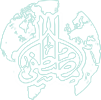At Age five, Tanveer was very nearly blind. He couldn’t move around or do much at all without support. His days were spent sitting on the front porch, listening to other children play.
Tanveer had started to develop cataract in both eyes when he was only a few months old. His mother noticed them as white spots, which gradually grew larger and eventually hindered his vision completely.
Cataract is something most people associate with old age. But in the developing world, it’s a problem that is common among children. It’s caused by a build-up of protein that clouds the eye’s lens, leading to blurred vision and eventual blindness.
Cataract isn’t difficult to treat. But unless it’s treated early, it can stop the natural development of a child’s eyes. Once it’s too late, the eyesight can never be properly restored. In communities where there’s little or no support for people who are blind, untreated cataract can mean no education, no income, no future and no possibility of escaping poverty.
Al Mustafa Welfare Trust (AMWT) operates free Eye-care Camps in eight countries, including Pakistan. To date, we’ve restored vision to over 30,000 people across two continents. Four years ago, Tanveer was one of our patients. Following his check-up at one of AMWT’s Pakistan Eye-care Camps, he received free cataract surgery. It changed the course of his life. Today, Tanveer is 9 years-old. His favourite subjects at school are Islamic Studies and Social Science. When he grows up, he wants to be a doctor.
AMWT’s 2015-16 eye restoration campaign target is to perform 100,000 cataract surgeries in an effort to alleviate needless blindness in the developing world.








